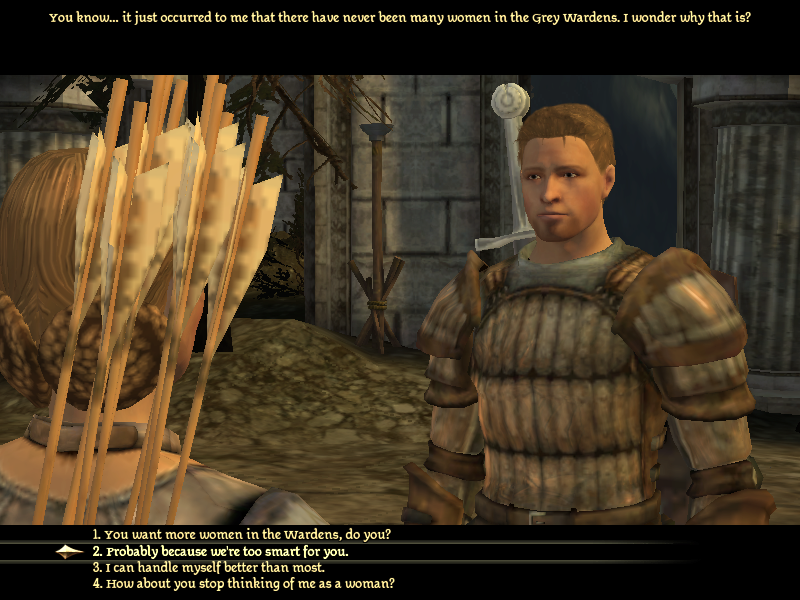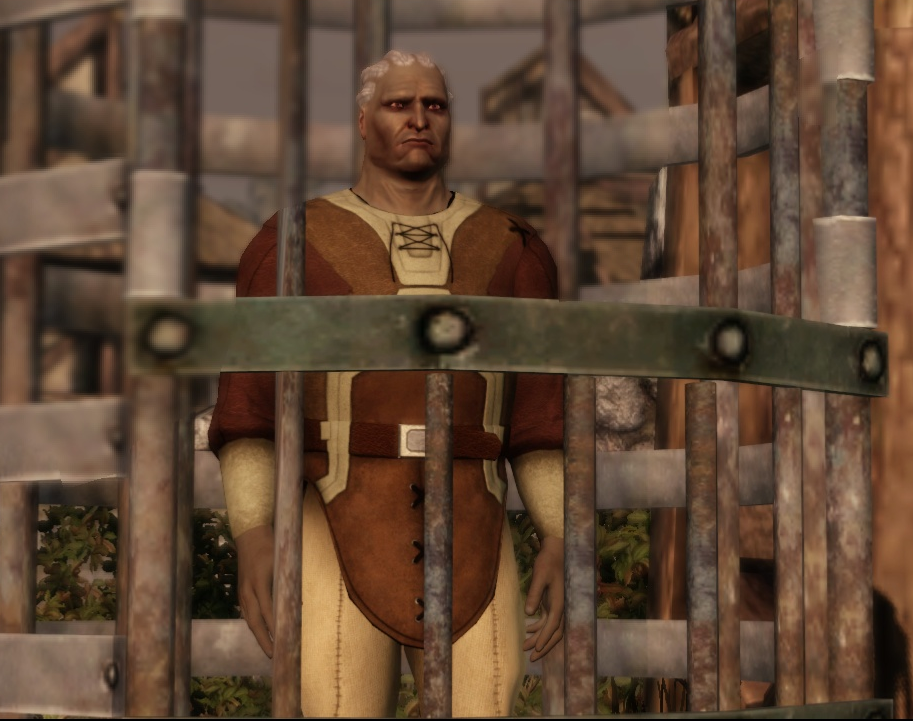In his article, “Genre Trouble,” Espen Aarseth argues that games “focus on self-mastery and exploration of the external world, not exploration of interpersonal relationships.” He makes exceptions for multi-player games and those where the player is god-like. However, Dragon Age: Origins falls into neither of these, but defies the second part of Aarseth’s claim, for interpersonal relationships play a key role in the progress of the game.
Players can converse with their companions (and anyone they meet) at will, and those conversations change and develop as the game progresses. Companions gain approval when the player make decisions they agree with, and disapproval when they disagree with the player’s actions. As a result, they either open up to the player, or shut them out. If a player gains high enough approval, they can unlock the companion’s personal quests, providing them with more gameplay material. If their approval falls too low however, the companion may opt to leave the party and the player loses them forever. While the player can monitor approval (and thus avoid these options) certain decisions automatically cause a companion to leave. In other words, companions act as independent people, with their own opinions and actions.

Depending on the answer the player chooses, the character will react differently.
Additionally, one of the companion’s key roles is how their presence alters the options of gameplay. For example, when in the village of Lothering, if the player tries to free an imprisoned man without high enough persuasion, the woman in charge will refuse, and thus he cannot be unlocked as a companion. However, if you happen to bring along Leliana (another companion), the player automatically gets permission to free the man.

The imprisoned man can only be released from the cage (and join the party) if certain decisions are made.
Aarseth would likely argue that these moments fall more under film, rather than his notion of “simulation” which makes games different from other media. Yet, during these “cut-scenes,” the player still gets to choose dialogue options, which the companions then react to accordingly. The player simulates speaking. Granted, Aarseth wrote his article several years before Dragon Age: Origins, and other games like it had hit the shelves. Back then the capacity of choice in games was usually limited to “yes” and “no” answers for accepting quests, or featured dialogue answers that had no real effect on the characters spoken to. However, nowadays, his argument no longer stands as games like Dragon Age, Skyrim, and others have shown.